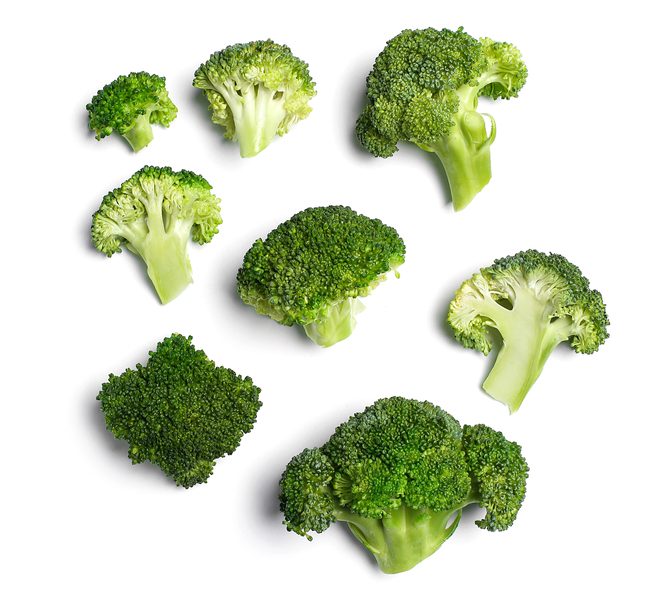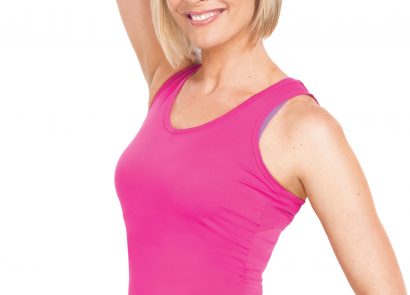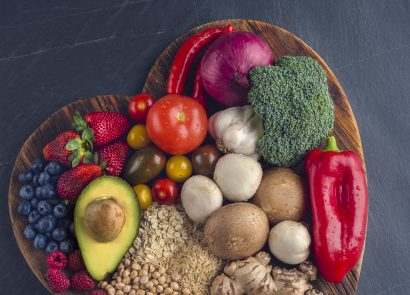-
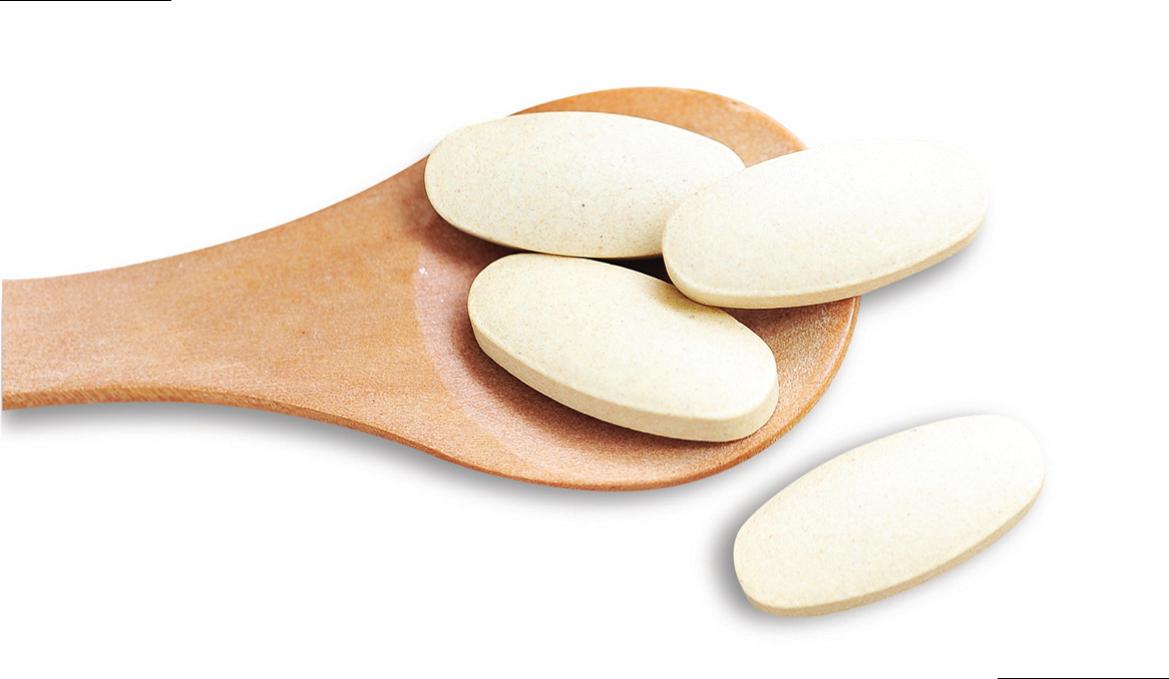 UP THE SUPPS If you’re thinking that meat substitutes can give you every vitamin and mineral you need, think again! Essential to keeping the body’s nerve and blood cells healthy, vitamin B12 only occurs naturally in animal products so make sure you stock up on supplements as soon as possible. Otherwise you could have a nasty wave of tiredness, weakness, constipation, loss of appetite, nerve problems and depression coming your way.
UP THE SUPPS If you’re thinking that meat substitutes can give you every vitamin and mineral you need, think again! Essential to keeping the body’s nerve and blood cells healthy, vitamin B12 only occurs naturally in animal products so make sure you stock up on supplements as soon as possible. Otherwise you could have a nasty wave of tiredness, weakness, constipation, loss of appetite, nerve problems and depression coming your way.
-
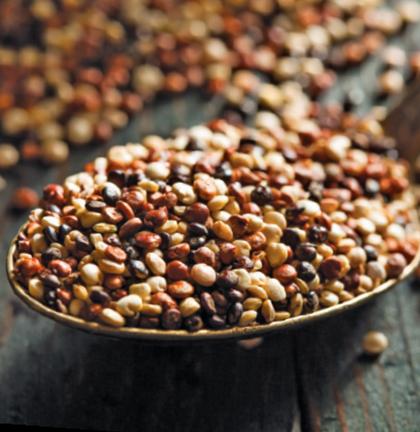 SOURCE NEW PROTEIN Vital for building muscle, cartilage, skin and blood, it’s widely documented that the majority of us aren’t getting enough protein. Eliminating all animal protein from your diet means you’ll need to be a little more creative from now on. Natural soy, lentils, beans, quinoa, and seitan are all great alternatives to keep you fuller for longer and ensure your cells grow and repair efficiently.
SOURCE NEW PROTEIN Vital for building muscle, cartilage, skin and blood, it’s widely documented that the majority of us aren’t getting enough protein. Eliminating all animal protein from your diet means you’ll need to be a little more creative from now on. Natural soy, lentils, beans, quinoa, and seitan are all great alternatives to keep you fuller for longer and ensure your cells grow and repair efficiently. -
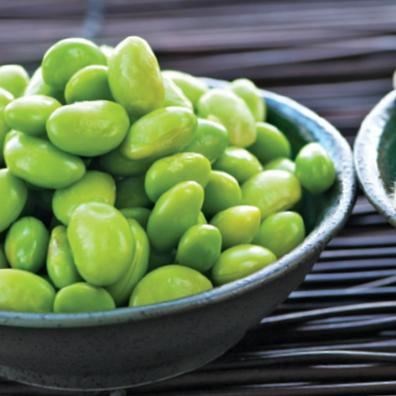 DON’T GO MAD ABOUT THE SOY It’s largely considered the go-to for vegans but the jury’s still out about the overall health benefits (and dangers) of soy. Meat substitutes are often highly processed and loaded with sodium and preservatives therefore it’s best to avoid them altogether. Opt for healthier soy products such as miso, tempeh, tofu, soy milk, and edamame.
DON’T GO MAD ABOUT THE SOY It’s largely considered the go-to for vegans but the jury’s still out about the overall health benefits (and dangers) of soy. Meat substitutes are often highly processed and loaded with sodium and preservatives therefore it’s best to avoid them altogether. Opt for healthier soy products such as miso, tempeh, tofu, soy milk, and edamame. -
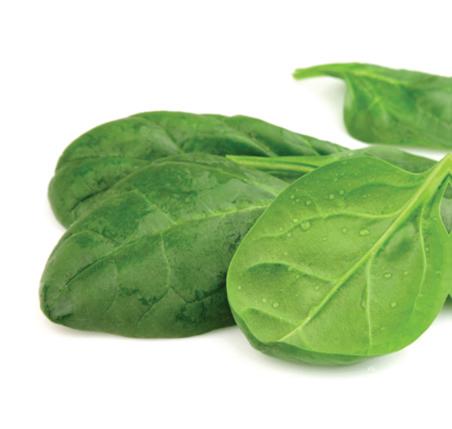 DUMP THE JUNK When you’re new to veganism it’s easy to be confused about what you can and can’t have, so reaching for that packet of crisps is all too tempting. Make sure you swot up on what you can have and keep a stash of healthy snacks and meal options to avoid grabbing junk food out of convenience. Salt and vinegar chickpeas are a much more nutritious option when hunger strikes.
DUMP THE JUNK When you’re new to veganism it’s easy to be confused about what you can and can’t have, so reaching for that packet of crisps is all too tempting. Make sure you swot up on what you can have and keep a stash of healthy snacks and meal options to avoid grabbing junk food out of convenience. Salt and vinegar chickpeas are a much more nutritious option when hunger strikes. -
READ UP This is vital when it comes to the weekly shop and making sure you don’t get caught out. It may have “vegan friendly” plastered over it but don’t presume the manufacturers will do the hard work for you. Watch out for casein and whey, which derive from milk, and are present in many cereal bars, breads, and granolas, while gelatin and tallow come from meat and should be given a wide birth.
-
VENTURE OUT Getting to grips with veganism can be overwhelming to begin with, so the thought of taking your new food preferences into the general public may seem impossible. “Try not to leave it to luck,” says Tony Bishop-Weston, author and vegan lifestyle coach (newforesthealth.com). “Asian restaurants usually offer more choices and are more understanding as they embraced vegetarianism in the past.” To avoid going hungry, make sure you research the menu beforehand or call the restaurant to ask for options. If worst comes to worst, build a delicious vegetarian meal from the side orders.
-
PREP, PREP, PREP One of the most difficult and, at times, frustrating elements of becoming a vegan is thinking ahead. Gone are the days of grabbing something on the go without another thought, but before long it’ll become second nature. “Everything’s a breeze if you make a plan and have high protein snacks in your pockets,” Tony advises.
-
BECOME THE IRON WOMAN Although you’ll be chowing down iron-rich legumes, sunflower seeds and leafy greens, you’ll be missing the herme form of iron that comes from animal products and is easily absorbed by the body. Non-herme iron often isn’t enough therefore you’ll need to double up on vitamin C foods such as red peppers, citrus, and broccoli which aids iron absorption.
-
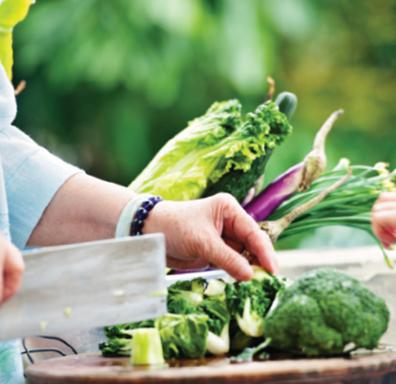 WATCH YOUR OMEGAS With so much emphasis on substituting meat vitamins, it’s easy to forget about our fishy friends. Essential for heart, brain, skin, and joint health, omega 3 fatty acids are also responsible for strong nails and shiny tresses. Although you can also get these from flaxseeds, walnuts and canola oil, it’s also best to pop a DHA capsule which contain omega 3s derived from algae (where fish get it from).
WATCH YOUR OMEGAS With so much emphasis on substituting meat vitamins, it’s easy to forget about our fishy friends. Essential for heart, brain, skin, and joint health, omega 3 fatty acids are also responsible for strong nails and shiny tresses. Although you can also get these from flaxseeds, walnuts and canola oil, it’s also best to pop a DHA capsule which contain omega 3s derived from algae (where fish get it from). -
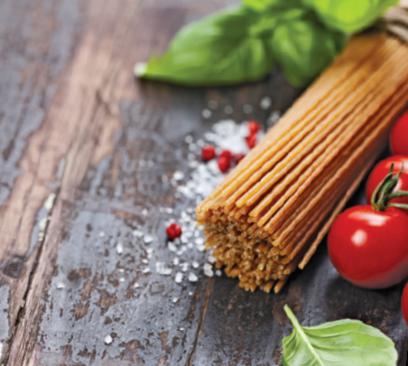 DITCH THE WHITE STUFF When it comes to finding alternatives, it can feel limiting and tempting to turn to what you know: the bad stuff. Although bread, rice and pasta may seem like safe options, the white variety are also high up on the glycaemic index. Swap them for brown and wholewheat versions to steady blood sugar levels and stop any bloating.
DITCH THE WHITE STUFF When it comes to finding alternatives, it can feel limiting and tempting to turn to what you know: the bad stuff. Although bread, rice and pasta may seem like safe options, the white variety are also high up on the glycaemic index. Swap them for brown and wholewheat versions to steady blood sugar levels and stop any bloating.
Show your inbox some love
Get a weekly digest of Health & Wellbeing emailed direct to you.










